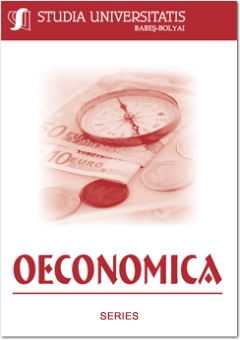TECHNICAL EFFICIENCY OF SMALLHOLDER SUGARCANE FARMERS IN MALAWI : THE CASE OF KASINTHULA CANE GROWING SCHEME
TECHNICAL EFFICIENCY OF SMALLHOLDER SUGARCANE FARMERS IN MALAWI : THE CASE OF KASINTHULA CANE GROWING SCHEME
Author(s): Tshediso Joseph Sekhampu, Harold P.E. Ngalawa, Betchani H.M. TchereniSubject(s): Economy
Published by: Studia Universitatis Babes-Bolyai
Keywords: technical efficiency; productivity; sugarcane farmers; Malawi.
Summary/Abstract: This study examines the productivity of peasant sugarcane farmers in rural Malawi. The article is based on data collected through a survey. A Stochastic Frontier Model is used to estimate technical efficiency levels of the Kasinthula Smallholder Cane Growers Scheme. A Cobb-Douglas production function for farmers of the scheme is estimated using the maximum log likelihood method. The results suggest that on average, farmers of the scheme are technically efficient, with an estimated technical efficiency mean score of about 89 percent. The recorded minimum score was 52 percent, with a maximum of 97 percent. This suggests that for the lowest level of efficiency, there is about 48 percent chance of increasing production using the available inputs. Land size is found to be an essential factor to increasing production. The level of experience of the farmer, level of education, gender of a field leader as well as mode of weeding are important determinants of technical efficiency of sugarcane out growers in Malawi.
Journal: Studia Universitatis Babes Bolyai - Oeconomica
- Issue Year: 57/2012
- Issue No: 2
- Page Range: 3-13
- Page Count: 11
- Language: English

